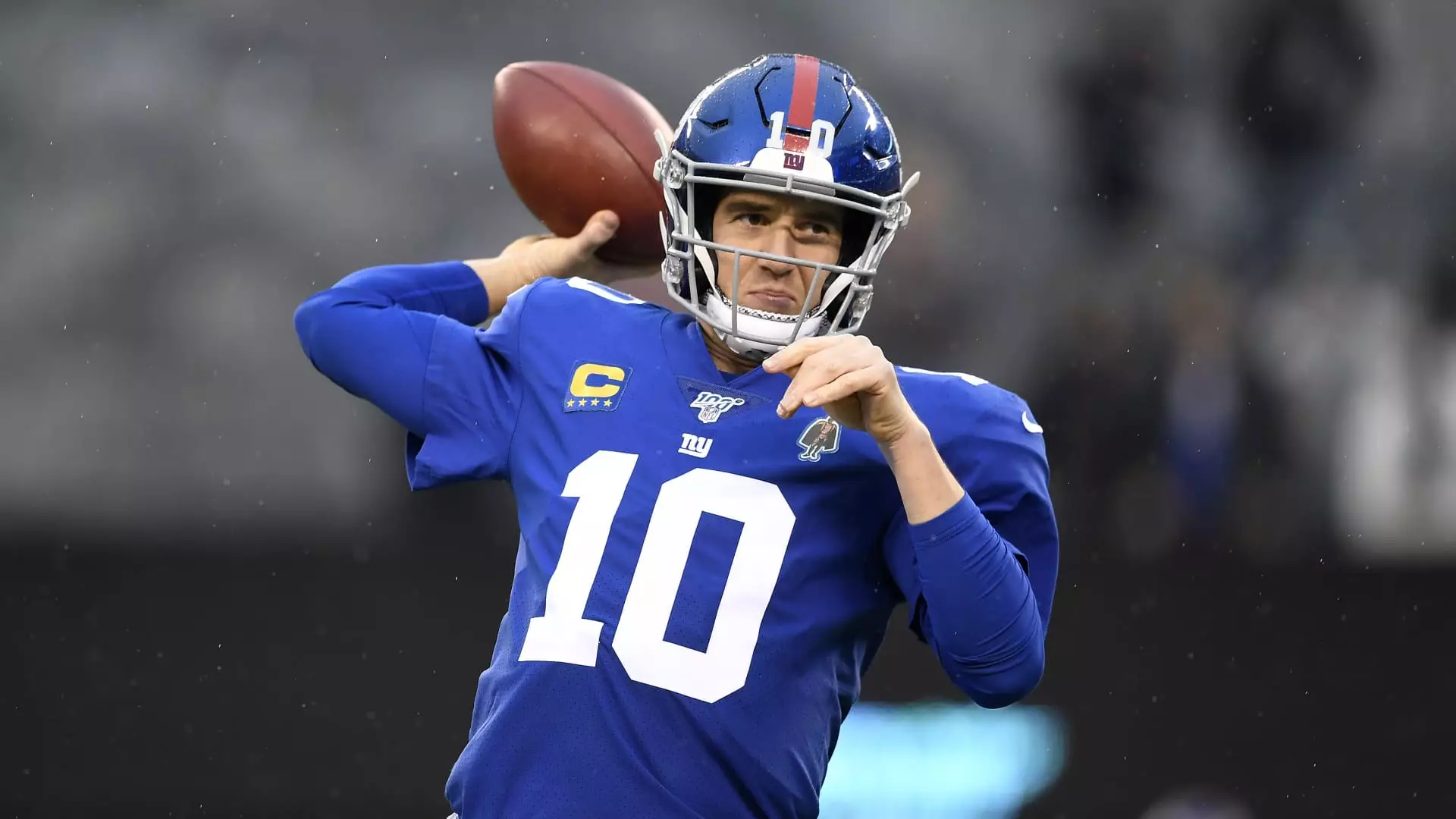In recent years, the astronomical rise in the valuation of NFL and NBA teams has become a defining narrative of American sports business. Teams like the New York Giants, Los Angeles Lakers, and San Francisco 49ers are now valued at astonishing figures—sometimes exceeding $8 billion and approaching $10 billion. This surge feeds a myth that sports franchises are infallible, ever-appreciating assets immune to economic downturns. Yet, beneath this glittering veneer lies a fragile foundation fueled more by speculative investor enthusiasm than genuine financial stability. The case of Eli Manning’s withdrawal from attempting to acquire a stake in the Giants underscores a critical reality: the inflated prices are increasingly disconnected from the teams’ tangible income streams and operational risks.
Rather than representing authentic valuation grounded in profitability or fan engagement, these figures often reflect the obsession with sports as a status symbol and investment opportunity. The problem isn’t just overpricing—it’s the systemic belief that these assets are virtually indestructible. When pro athletes like Manning openly admit they can’t justify the costs, it exposes the underlying deception of sky-high valuations. The truth is, these valuations are driven more by market sentiment, media hype, and the allure of owning a piece of American cultural history than by solid economic fundamentals.
The Myth of Immense Profitability in American Sports
Many critics have pointed out that NFL teams, despite their high valuations, are not always lucrative in the traditional sense. Unlike corporations that generate steady revenue from sales or services, sports franchises depend heavily on a mix of broadcasting rights, merchandise sales, and live events—factors that are susceptible to shifts in consumer preferences, technology, and external shocks such as the recent pandemic. The sustained growth of team valuations seems less about actual profitability and more about the increasing willingness of private equity and ultra-wealthy investors to speculate on sports franchises as an alternative asset class.
This disconnect becomes more evident considering Manning’s candidacy—an accomplished ex-player whose investments and off-field ventures suggest a clear understanding of business. Yet, even Manning recognizes that the astronomical costs prevent many former players and private investors from participating in the buying frenzy. His statement about being priced out is not merely about personal budget constraints but a reflection of a broader trend: the market has become increasingly inaccessible to all but the most monied elites, further fueling concerns about economic inequality and the concentration of wealth within the sports industry.
Moreover, the league’s recent policy shift allowing private equity firms to buy stakes of up to 10% in teams demonstrates an intent to commodify sports assets further. This move risks alienating fans and players alike, as it transforms beloved franchises—an integral part of community identity—into speculative investment vehicles. Sports teams are no longer just entertainment; they are symbols of wealth and financial ambition—commodities that profit-driven investors chase at the expense of integrity and sustainability.
The Genuine Risks and the Illusion of Enduring Wealth
The inflated valuation bubble presents a palpable risk for the industry. When the core revenue sources—broadcast deals, ticket sales, merchandising—face disruptions, the entire premise of limitless team value collapses. For example, the decline in game-day attendance or streaming rights renegotiations could sharply diminish future profits, yet the current valuations have already baked in unrealistic growth expectations.
What this indicates is that the perceived “wealth” of these franchises is largely superficial, feeding into fantasies of even richer sales and acquisition bids. The reality is, these valuations are fragile, vulnerable to economic recessions, shifts in consumer behavior, or a dip in media rights deals. Eli Manning’s honest assessment—that the current valuation at $10 billion is “a very big number”—is a rare admission of the underlying instability and the danger of equating high valuation with genuine wealth.
Furthermore, the concentration of ownership among billionaire families and private equity groups exacerbates societal inequities. The fact that the Mara and Tisch families own half of the Giants, and they are now exploring minority stakes with external firms, reflects a larger trend of privatization and market domination that often alienates the everyday fan. Instead of democratizing access or fostering community spirit, these investments deepen the divide between the wealthy elites controlling these franchises and the fans who sustain their popularity.
The broader cultural implication is troubling: as sports franchises become increasingly financialized, their original purpose—community engagement, shared identity, and entertainment—diminishes. Instead, they become high-stakes assets in a global financial game where the true value is measured in dollars, not loyalty or tradition. Eli Manning’s stance—choosing to abstain from buying a stake due to costs and conflicts of interest—serves as a stark reminder that the current valuation craze is unsustainable and rooted in illusion rather than genuine economic health.

